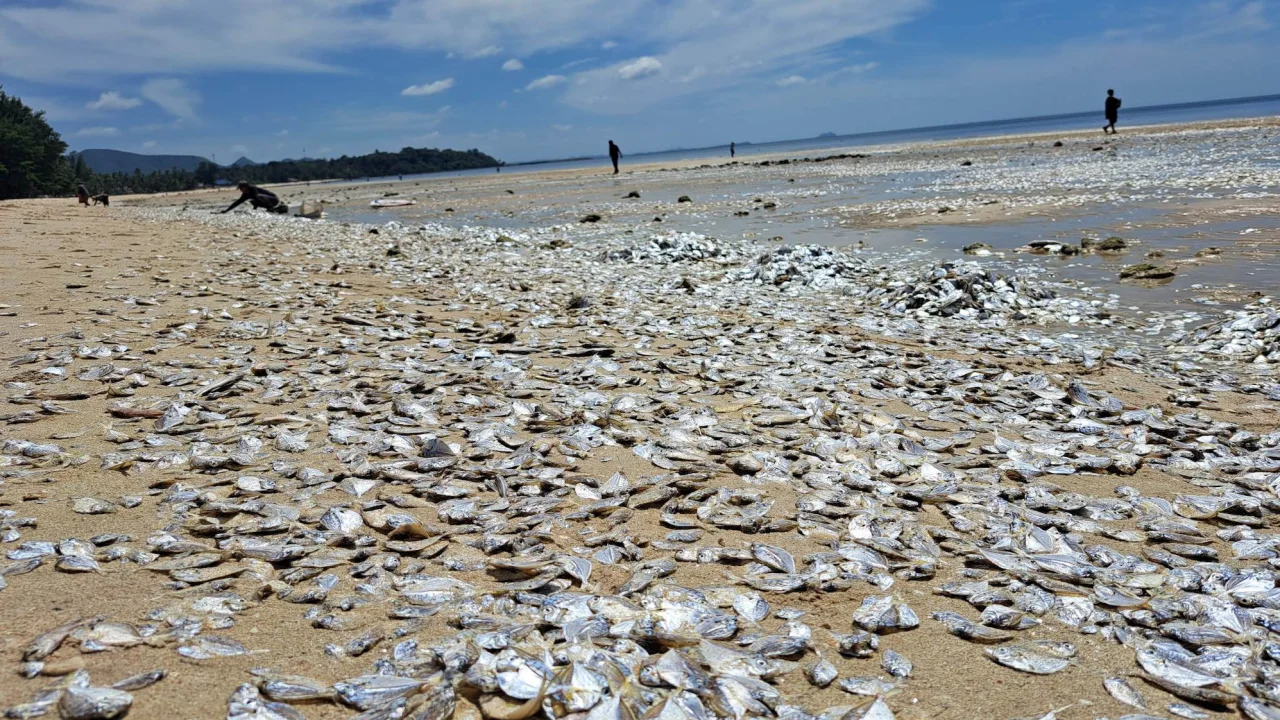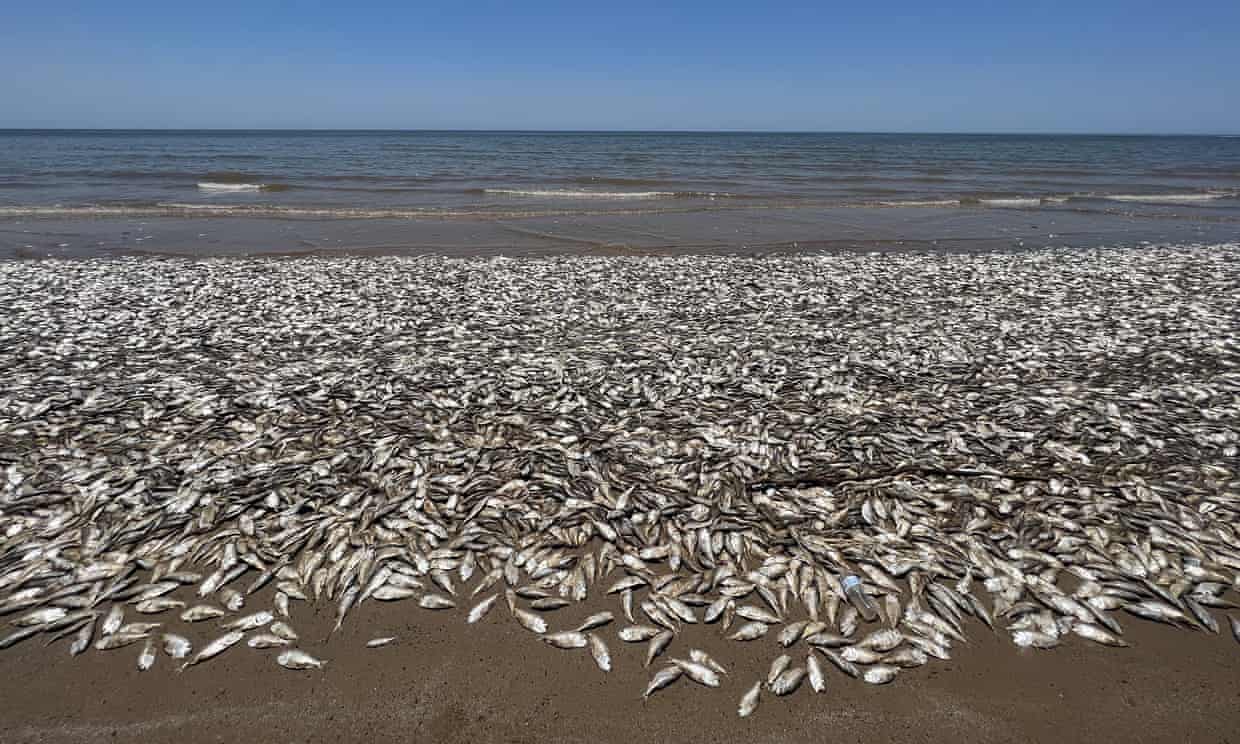Thousands of dead fish have tragically washed up on a beach in Thailand, raising concerns about the impact of climate change on marine ecosystems, CNN reports.

Experts believe that climate change may have played a significant role in causing the mass fish deaths, as it could have stimulated a plankton bloom that lowered oxygen levels in the water, suffocating the fish on a roughly 4-kilometer stretch of beach in Thailand’s southern Chumphon province on June 22.
Thon Thamrongnawasawat, the deputy dean of the Faculty of Fisheries at Kasetsart University, explained that natural phenomena like coral bleaching or plankton blooms have been occurring for years.
“Various natural phenomena, such as coral bleaching or plankton bloom, have naturally occurred for thousands to tens of thousands of years. However, when global warming occurs, it intensifies and increases the frequency of existing phenomena,” he stressed.
Plankton blooms, which occur once or twice a year in the area, typically last for a period of two to three days. To further investigate the incident, local authorities have collected seawater samples for assessment and analysis.
The occurrence of marine heat waves has become a growing concern worldwide. The British Met Office reported that global sea surface temperatures in April and May this year were the highest on record for those months. The warming impact of the natural climate phenomenon El Niño, combined with human-caused climate change, has led to higher temperatures in both the oceans and the land.

This week, similar incidents of dead fish washing up on beaches have been reported in other parts of the world. In Texas, thousands of dead fish appeared on beaches, while rising sea temperatures in the British coast are causing experts to warn about potential algal blooms. Additionally, Southern California has witnessed the distressing sight of hundreds of dolphins and sea lions washing up dead or sick on beaches due to a toxic algal bloom. While the algal blooms in California were primarily caused by strong coastal upwelling, scientists believe that climate change will likely contribute to the increase of such blooms, as certain algae thrive in warm water.
The impact of these events on local ecosystems is expected to be severe. Marine heatwaves, particularly those affecting areas like the Great Barrier Reef in Australia, are highly detrimental to fragile ecosystems. Sarah Perkins-Kirkpatrick, a climate scientist from the University of New South Wales, highlighted the concerning consequences of marine heatwaves, stating that they pose a threat to various regions around the world.
Comments (0)